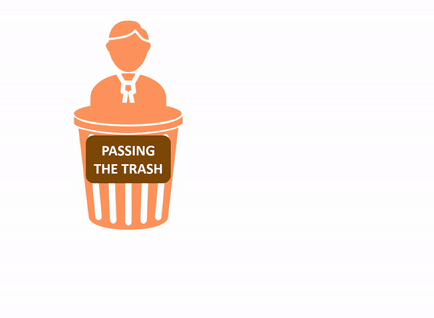All too regularly, we see a news headline that a school employee has engaged in sexual abuse or misconduct with students in a K–12 school. Often, an accused teacher will be transferred to three different schools before they are reported to the police (GAO, 2010). Sexual offenders can end up in schools due to absent, limited, or inconsistent background checks during the hiring process and the absence of a national database of disciplinary actions against licenses or certifications. In addition, because of potential stigma, reputation concerns, and possible legal consequences, school officials sometimes fail to report school employee sexual misconduct to law enforcement despite mandatory reporting laws (Grant, Wilkerson, Pelton, Cosby, & Henschel, 2017). Some school officials avoid these consequences by making confidentiality agreements with offenders. These private settlements, known as “passing the trash” or “the lemon dance,” allow known sexual offenders to discretely leave a school district to embark on employment opportunities in other K–12 school systems.
In 2015, Every Student Succeeds Act (ESSA) enacted a provision (“Prohibition on Aiding and Abetting Sexual Abuse”) that legally prevents school districts from entering into confidentiality agreements with school personnel who engage in sexual misconduct with students. From October 2016 to January 2017, Magnolia Consulting sought to determine how many states had laws or policies that included this provision to ban passing the trash.1 We found that over half of the state representatives cited laws and codes of ethics that included information about prohibiting sexual abuse and misconduct, but only four states (Washington, Oregon, Pennsylvania, and Connecticut) had laws that directly addressed the ESSA provision. At the time of the study, an additional seven states were drafting language or had requested model language for drafting bills, and 39 states lacked any legislation for “Prohibition on Aiding and Abetting Sexual Abuse.”
In the states with no legislation, 24 state representatives noted state laws or codes of ethics they believed demonstrated how their state already adhered to the federal policy. For instance, state representatives referred to laws on state background checks, mandatory reporting of child abuse, and license or certification revocation and other disciplinary actions. While these policies help identify cases of abuse and prevent offenders from getting licensed, they do not prohibit school systems from assisting an offender in obtaining a new job. Since ESSA state plans were still being drafted at the time of the study, additional research is needed to monitor how states’ compliance with the aiding and abetting ESSA provision has developed and been implemented since 2017.
Having state legislation include this ESSA provision is a first step toward preventing continued sexual abuse and misconduct of K–12 students by school employees. To learn more about school employee sexual abuse and misconduct and to review studies that we conducted in this topic area, please download a copy of the full article, visit our Publications and Reporting page, and visit Stop Educator Sexual Abuse, Misconduct, and Exploitation (S.E.S.A.M.E.net).
1This project was supported by Award No. 2015-CK-BX-0009 awarded by the National Institute of Justice, Office of Justice Programs, U.S. Department of Justice.
References:
Government Accountability Office. (2010). K–12 education: Selected cases of public and private schools that hired or retained individuals with histories of sexual misconduct. United States Government Accountability Office, GAO-11-200. Retrieved from http://www.gao.gov/products/GAO-11-200
Grant, B. E., Wilkerson, S. B., Pelton, deK., Cosby, A. C., & Henschel, M. M. (2017). A Case Study of K–12 School Employee Sexual Misconduct: Lessons Learned from Title IX Policy Implementation. Charlottesville, VA: Magnolia Consulting, LLC.

